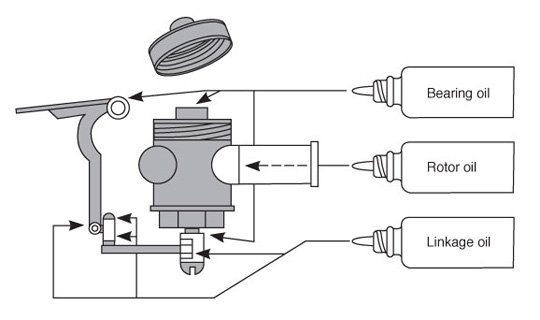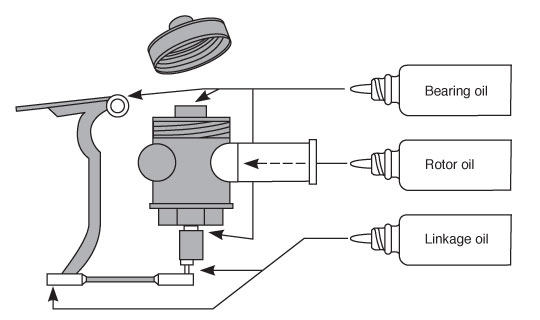Rotary Valve Care
Rotor valves themselves 'float' inside the casings - the only parts that make contact and create friction are the 'bearings' shafts on either side. This is very different to piston valves, and will require unique maintenance.
Whether or not you are going to play the instrument, it is good practice to depress the lever(s) a few times daily, to ensure they are still moving freely. Neglected rotor valves are very prone to seizing up as they are extremely close tolerance.
Rotor Maintenance
1. Apply bearing/linkage oil (ALU031) into the space between the swivel arm (collar) and the rotor shaft. Most oils of this type have a 'needle applicator' to make this task easier.
2. Remove the valve cap and apply the bearing/linkage oil (ALU031) onto the small revolving centre part of the bearing plate. Depress the lever to rotate the valve a few times to work the oil into the bearing.
3. Remove the slides, and put a few drops of rotor/thin valve oil (ALU030) down the slide tubes directly into the rotors. Do not over apply rotor/valve oil - only a very light film is required to help prevent corrosion.
4. Finally, press the levers while turning the instrument in all directions, this will encourage the oil to travel around all surfaces inside the casings and coat them evenly.
If your instrument has linkages connecting the levers to the rotors, you can lubricate the mechanisms with 'linkage oil' (ALU032) to keep them quiet.
Metallic clicking in the valve movement would suggest either dry or loose parts in the mechanism. First try the steps above and if the problem is still not resolved, take your instrument to a repairer.
Hinged Linkage Lubrication

Linkage Ball Lubrication

18 Months - 24 Months
French Horn care
To ensure ongoing correct performance, have the rotary valve checked by a professional repairer every couple of years.